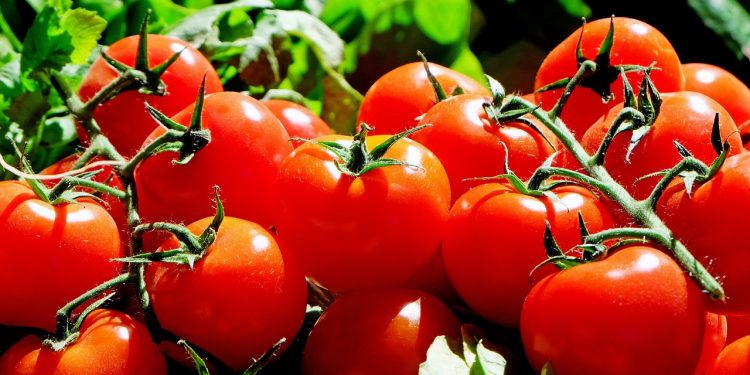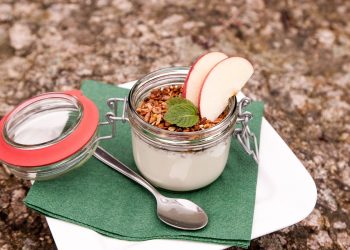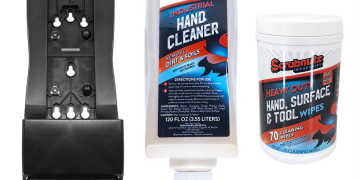Chronic inflammation is at the root of many health problems, including heart disease, diabetes, arthritis, and even certain cancers. While inflammation is a natural immune response, when it becomes persistent, it can cause significant damage to the body. The good news is that what you eat can have a profound impact on reducing inflammation. By making informed dietary choices, you can help your body fight chronic inflammation and promote overall health. Here’s how to use diet as a powerful tool to combat inflammation.
Understanding Inflammation and Its Triggers
Inflammation is the body’s way of defending itself against injury, infection, or harmful stimuli. Acute inflammation, such as swelling around a cut, is beneficial for healing. However, chronic inflammation—a prolonged state of low-grade inflammation—can contribute to serious health issues.
Dietary and lifestyle factors, including excessive consumption of processed foods, sugar, and unhealthy fats, can exacerbate inflammation. Coupled with stress, lack of exercise, and insufficient sleep, these factors create a perfect storm for chronic inflammation.
Anti-Inflammatory Foods to Include in Your Diet
Certain foods contain nutrients and compounds that help reduce inflammation. Incorporating these into your daily meals can make a noticeable difference.
1. Fruits and Vegetables
Fruits and vegetables are rich in antioxidants, vitamins, and minerals that neutralize free radicals and reduce oxidative stress.
- Berries: Blueberries, strawberries, and raspberries are loaded with anthocyanins, powerful antioxidants with anti-inflammatory properties.
- Leafy Greens: Spinach, kale, and Swiss chard are excellent sources of vitamins A, C, and K, all of which combat inflammation.
- Cruciferous Vegetables: Broccoli, cauliflower, and Brussels sprouts contain sulforaphane, a compound known to lower inflammation.
- Tomatoes: Rich in lycopene, tomatoes are particularly effective at reducing inflammation associated with heart disease.
2. Healthy Fats
Healthy fats play a crucial role in reducing inflammation and supporting overall health.
- Olive Oil: Extra virgin olive oil contains oleocanthal, a compound with effects similar to anti-inflammatory medications.
- Avocados: High in monounsaturated fats and fiber, avocados help combat inflammation while supporting heart health.
- Fatty Fish: Salmon, mackerel, and sardines are rich in omega-3 fatty acids, which reduce inflammatory markers like C-reactive protein (CRP).
- Nuts and Seeds: Almonds, walnuts, flaxseeds, and chia seeds provide omega-3s and antioxidants.
3. Whole Grains
Refined grains can exacerbate inflammation, but whole grains like quinoa, brown rice, oats, and farro provide fiber that promotes gut health and reduces inflammatory responses.
4. Herbs and Spices
Many herbs and spices have potent anti-inflammatory effects, thanks to their bioactive compounds.
- Turmeric: Curcumin, the active ingredient in turmeric, is renowned for its ability to reduce inflammation. Pair it with black pepper to enhance absorption.
- Ginger: Known for its anti-inflammatory and antioxidant properties, ginger can be added to teas, soups, and stir-fries.
- Garlic: Contains sulfur compounds that inhibit inflammatory pathways.
- Cinnamon: Offers antioxidant and anti-inflammatory benefits, especially when used in baked goods or teas.
5. Green Tea
Green tea is a rich source of polyphenols, particularly epigallocatechin gallate (EGCG), which helps reduce inflammation and protects against cell damage.
6. Legumes
Beans, lentils, and chickpeas are high in fiber and plant-based protein, both of which are associated with reduced levels of inflammatory markers.
Foods to Avoid for Reducing Inflammation
While some foods combat inflammation, others can trigger or worsen it. Reducing or eliminating these from your diet can help:
1. Refined Carbohydrates and Sugars
High-sugar foods and refined grains cause blood sugar spikes, leading to increased production of pro-inflammatory cytokines.
- Avoid sugary beverages, candy, and desserts.
- Limit white bread, pasta, and other refined grains.
2. Trans Fats
Found in many processed and fried foods, trans fats are strongly linked to inflammation.
- Check ingredient labels for partially hydrogenated oils.
- Opt for baked or roasted foods instead of fried.
3. Processed Meats
Bacon, sausages, and deli meats often contain high levels of preservatives and advanced glycation end products (AGEs), which can promote inflammation.
4. Excessive Alcohol
While moderate alcohol consumption may have some health benefits, excessive intake can contribute to systemic inflammation.
5. Omega-6 Fatty Acids
Although omega-6 fatty acids are essential, an imbalance between omega-6 and omega-3 fats can drive inflammation. Reduce consumption of vegetable oils like corn, soybean, and sunflower oil.
Hydration and Its Role in Reducing Inflammation
Staying adequately hydrated is essential for flushing out toxins and maintaining cellular function. Water supports the lymphatic system, which removes inflammatory waste products. Herbal teas and water-rich foods like cucumbers and watermelon can also contribute to hydration.
The Importance of Gut Health
A healthy gut microbiome plays a pivotal role in reducing inflammation. Imbalances in gut bacteria can trigger inflammatory responses, so focusing on gut health is key.
Tips for Improving Gut Health:
- Eat Fermented Foods: Include yogurt, kefir, sauerkraut, and kimchi for probiotics.
- Increase Fiber Intake: Whole grains, fruits, and vegetables provide prebiotic fibers that feed beneficial gut bacteria.
- Limit Artificial Sweeteners: These can disrupt the gut microbiome and increase inflammation.
Meal Planning for an Anti-Inflammatory Diet
Planning your meals ahead of time can help you consistently include anti-inflammatory foods while avoiding triggers. Here’s an example of a day’s worth of meals:
Breakfast:
- Overnight oats topped with blueberries, chia seeds, and a drizzle of honey.
- Green tea.
Snack:
- A handful of almonds and an apple.
Lunch:
- Grilled salmon with a quinoa salad featuring spinach, cherry tomatoes, and avocado.
- Lemon water.
Snack:
- Sliced cucumbers with hummus.
Dinner:
- Stir-fried tofu with broccoli, carrots, and ginger over brown rice.
- Herbal tea, such as chamomile or peppermint.
Lifestyle Factors to Complement Your Diet
In addition to dietary changes, certain lifestyle habits can amplify your anti-inflammatory efforts:
- Regular Exercise: Physical activity helps reduce inflammation and promotes overall health.
- Stress Management: Chronic stress can exacerbate inflammation. Practices like yoga, meditation, and deep breathing can help.
- Adequate Sleep: Sleep is essential for repairing the body and regulating inflammatory processes. Aim for 7-9 hours per night.
By prioritizing these nourishing choices and lifestyle habits, you can significantly reduce inflammation and enhance your overall quality of life. The key is consistency and a focus on whole, nutrient-dense foods that support your body’s natural defenses.










